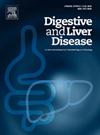新型降糖药和二甲双胍在2型糖尿病肝移植受者中的耐受性和短期有效性:来自DiaBoLT2021研究的见解
IF 3.8
3区 医学
Q1 GASTROENTEROLOGY & HEPATOLOGY
引用次数: 0
摘要
背景和目的2型糖尿病(T2DM)影响多达三分之一的肝移植受者,并与发病率增加、移植物和患者生存率降低相关。移植后糖尿病(PTDM)可能会重新出现或代表原有T2DM的持续存在。由于与免疫抑制治疗的潜在相互作用,其管理是复杂的,并且由于胰岛素的安全性和简单性,尽管结果不理想,但经常继续使用胰岛素。值得注意的是,关于新型降糖药和二甲双胍在这一人群中的安全性和有效性的数据仍然有限。本研究旨在评估新型降糖药(GLP-1受体激动剂、DPP-4抑制剂、SGLT2抑制剂)和二甲双胍对已存在或移植后T2DM的成人肝移植受者的短期耐受性和代谢影响。方法开展一项单中心观察性研究(DiaBoLT2021),纳入132例T2DM成年肝移植患者,于2021年12月至2024年12月在临床营养与代谢部门进行随访。数据从电子病历中提取,并在6个月的随访中进行评估。研究终点包括:(1)治疗耐受性;(2) HbA1c、体重/BMI和胰岛素需求的变化。结果132例患者中有126例使用二甲双胍;5因胃肠道副作用停用。在GLP-1受体激动剂使用者中(n=55), 4人因恶心或呕吐而停止使用。52例患者使用SGLT2抑制剂,其中1例因泌尿生殖系统感染停药。DPP-4抑制剂未发生停药。所有不良事件均轻微,停药后迅速消退。重要的是,胃肠道副作用不需要任何免疫抑制方案的修改。6个月时,血糖控制和体重均有显著改善(p < 0.05)。28%的患者停止了胰岛素治疗,而其他患者则减少了剂量或过渡到更简单的方案。结论在T2DM肝移植患者中,二甲双胍和新型降糖药在短期内均安全有效。这些发现支持在这一人群中向更安全和更个性化的糖尿病管理模式转变,有可能减少胰岛素负担,增强代谢结果,并利用选定的新疗法提供的心肾保护益处。本文章由计算机程序翻译,如有差异,请以英文原文为准。
Tolerability and Short-term Effectiveness of Novel Antidiabetic Agents and Metformin in Liver Transplant Recipients with Type 2 Diabetes: Insights from the DiaBoLT2021 Study
Background and Aim
Type 2 diabetes mellitus (T2DM) affects up to one-third of liver transplant recipients and is associated with increased morbidity and reduced graft and patient survival. Post-transplant diabetes mellitus (PTDM) may emerge de novo or represent a persistence of pre-existing T2DM. Its management is complex due to potential interactions with immunosuppressive therapy, and insulin is often continued despite suboptimal outcomes, owing to its perceived safety and simplicity. Notably, data on the safety and effectiveness of novel glucose-lowering agents and metformin in this population remain limited. This study aims to evaluate the short-term tolerability and metabolic impact of novel antidiabetic drugs (GLP-1 receptor agonists, DPP-4 inhibitors, SGLT2 inhibitors) and metformin in adult liver transplant recipients with pre-existing or post-transplant T2DM.
Methods
A monocentric, observational study (DiaBoLT2021) was conducted, including 132 adult recipients of liver transplantation with T2DM, followed from December 2021 to December 2024 at a Clinical Nutrition and Metabolism Unit. Data were extracted from electronic medical records and evaluated at 6-month follow-up. Study endpoints included: (1) treatment tolerability; (2) changes in HbA1c, weight/BMI, and insulin requirements.
Results
Metformin was prescribed in 126 out of 132 patients; 5 discontinued due to gastrointestinal side effects. Among GLP-1 receptor agonist users (n=55), 4 discontinued due to nausea or vomiting. SGLT2 inhibitors were prescribed in 52 patients, with 1 discontinuation due to a genitourinary infection. No discontinuations occurred with DPP-4 inhibitors. All adverse events were mild and promptly resolved after discontinuation. Importantly, gastrointestinal side effects did not require any modification of immunosuppressive regimens. At 6 months, significant improvements in glycemic control and body weight were observed (p<0.05). Insulin therapy was discontinued in 28% of patients, while others reduced dosage or transitioned to simpler regimens.
Conclusions
In liver transplant recipients with T2DM, both metformin and novel antidiabetic agents appear safe and metabolically effective in the short term. These findings support a paradigm shift toward a safer and more personalized management of diabetes in this population, with the potential to reduce insulin burden, enhance metabolic outcomes, and harness the cardio-renal protective benefits offered by selected novel therapies.
求助全文
通过发布文献求助,成功后即可免费获取论文全文。
去求助
来源期刊

Digestive and Liver Disease
医学-胃肠肝病学
CiteScore
6.10
自引率
2.20%
发文量
632
审稿时长
19 days
期刊介绍:
Digestive and Liver Disease is an international journal of Gastroenterology and Hepatology. It is the official journal of Italian Association for the Study of the Liver (AISF); Italian Association for the Study of the Pancreas (AISP); Italian Association for Digestive Endoscopy (SIED); Italian Association for Hospital Gastroenterologists and Digestive Endoscopists (AIGO); Italian Society of Gastroenterology (SIGE); Italian Society of Pediatric Gastroenterology and Hepatology (SIGENP) and Italian Group for the Study of Inflammatory Bowel Disease (IG-IBD).
Digestive and Liver Disease publishes papers on basic and clinical research in the field of gastroenterology and hepatology.
Contributions consist of:
Original Papers
Correspondence to the Editor
Editorials, Reviews and Special Articles
Progress Reports
Image of the Month
Congress Proceedings
Symposia and Mini-symposia.
 求助内容:
求助内容: 应助结果提醒方式:
应助结果提醒方式:


